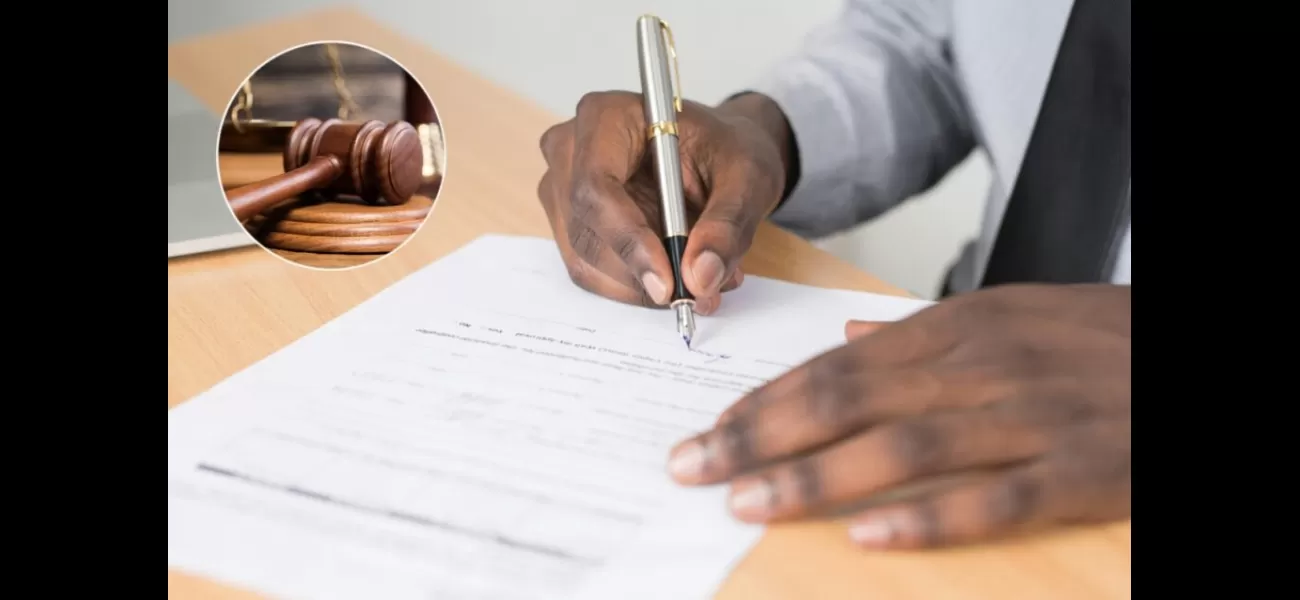Elderly man fights legal battle over claim that ex-stepson took his house.
85-year-old Robert Elder in legal dispute over ownership of his southwest Atlanta home.
March 6th 2024.

Robert Elder, a senior citizen residing in the southwest area of Atlanta, is facing a troubling legal battle concerning the ownership of his beloved home. After dedicating over 50 years to building equity in his property, he now finds himself in the middle of a dispute over its rightful owner. According to Atlanta News First, Elder claims that his former stepson, Torrey Elder, has deceitfully acquired ownership of his home through the submission of three deeds, all without his knowledge or consent.
The confusion began last year when three new deeds were filed in the months of July, August, and September, all seemingly transferring the ownership of Robert Elder's home to Torrey. What raises suspicion is that none of the signatures on these deeds match the authentic signature of Robert Elder, as confirmed by official documents. Torrey, on the other hand, insists that his father willingly transferred the property to him and accuses the elderly man of lying.
Upon investigation by Atlanta News First, it was discovered that there is a significant loophole in Georgia's property laws. Filing property paperwork in the clerk's office does not require any form of identification, and proof of ownership is not mandatory. This flaw in the system allows individuals to file fraudulent deeds without verifying their identity or proving their rightful ownership.
Real estate fraud attorney Rick Alembik, who has taken on the case, firmly states, "Mr. Elder did not sign these documents, absolutely not. This is stealing. This is theft." He emphasizes that even though there was no conventional break-in, the fraudulent acquisition of property is a serious crime that should be prosecuted.
The lawsuit does not name the notaries as defendants, but it does highlight their involvement in the alleged forgery of deeds. According to state law, notaries are only supposed to stamp documents when they witness and confirm the identity of the signer. However, in this case, the notarization of deeds raises questions about how they were validated without the presence or confirmation of the rightful property owner.
Jamilah Garth and Christine Smith, the notaries who signed the contested deeds, have come under scrutiny. Although Smith was reached by phone, she allegedly declined to provide an explanation for her involvement in the incident. As Robert Elder fights to reclaim what is rightfully his, this case brings to light the vulnerabilities within Georgia's property laws and the urgent need for reforms to protect homeowners from fraudulent practices.
In a related story, an attorney is fighting for the rights of black farmers after her own family's land was stolen. It's a reminder of the ongoing struggle for justice and fairness in the realm of property ownership.
The confusion began last year when three new deeds were filed in the months of July, August, and September, all seemingly transferring the ownership of Robert Elder's home to Torrey. What raises suspicion is that none of the signatures on these deeds match the authentic signature of Robert Elder, as confirmed by official documents. Torrey, on the other hand, insists that his father willingly transferred the property to him and accuses the elderly man of lying.
Upon investigation by Atlanta News First, it was discovered that there is a significant loophole in Georgia's property laws. Filing property paperwork in the clerk's office does not require any form of identification, and proof of ownership is not mandatory. This flaw in the system allows individuals to file fraudulent deeds without verifying their identity or proving their rightful ownership.
Real estate fraud attorney Rick Alembik, who has taken on the case, firmly states, "Mr. Elder did not sign these documents, absolutely not. This is stealing. This is theft." He emphasizes that even though there was no conventional break-in, the fraudulent acquisition of property is a serious crime that should be prosecuted.
The lawsuit does not name the notaries as defendants, but it does highlight their involvement in the alleged forgery of deeds. According to state law, notaries are only supposed to stamp documents when they witness and confirm the identity of the signer. However, in this case, the notarization of deeds raises questions about how they were validated without the presence or confirmation of the rightful property owner.
Jamilah Garth and Christine Smith, the notaries who signed the contested deeds, have come under scrutiny. Although Smith was reached by phone, she allegedly declined to provide an explanation for her involvement in the incident. As Robert Elder fights to reclaim what is rightfully his, this case brings to light the vulnerabilities within Georgia's property laws and the urgent need for reforms to protect homeowners from fraudulent practices.
In a related story, an attorney is fighting for the rights of black farmers after her own family's land was stolen. It's a reminder of the ongoing struggle for justice and fairness in the realm of property ownership.
[This article has been trending online recently and has been generated with AI. Your feed is customized.]
[Generative AI is experimental.]
0
0
Submit Comment





